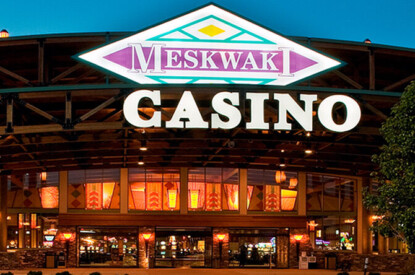Pulse
Retail technology champions
By Lewis - 27 May 2020
During the ICE show in London, FSB Technology showcased its latest retail sports betting solution to the international market. This technology is set to propel the solutions provider into the global gaming marketplace. FSB Technology’s David McDowell spoke to G3 about the company’s latest products, market aspirations and how the injection of funds from Clairinvest will change the FSB’s trajectory in 2020.
FSB revealed its latest retail sports betting solutions at ICE London earlier this year. Could you tell us more about FSB’s touchscreen EPOS and self-service technology?
We have spent the past 12 years building our industry leading, scalable sports betting platform which has so far been aimed at the thriving online gambling sector. The time is now right for us to transition to a full omni-channel offering, and we launched our touchscreen and EPOS self-service technologies at ICE London.
Our retail technologies will open the door for us to work with more casino, sports betting and lottery operators, especially those that want to tie together their land-based and online betting products and services. Retail still accounts for around 90 per cent of the market, and FSB is now in a position to assist operators in bridging the gap between retail and online.
Last year, Clairvest Group invested £23m for a stake in FSB. How will the investment capital from Clairvest Group benefit FSB’s growth strategy?
In terms of working capital, we received between £5m and £10m, allowing us to invest in and scale up our management and business development teams, as well as invest further into retail betting products and business intelligence systems.
FSB has historically been focused on our home market in the UK, but following the investment we have been able to build an international business development team which will allow us to strengthen our position as a leading technology provider in regulated markets around the world. I have also been able to hire a Chief Financial Officer for the first time, which has already made a huge difference to helping FSB scale up.
But perhaps the most significant use of the funds has been to accelerate our investments into data. We are really excited about opportunities to use more live data and AI to drive safe gaming solutions and real-time marketing tools – two products that need to be better linked in regulated markets where customer care is a focal point. The live data is particularly important as it means we can provide our operator partners with a real-time view of the player and drive real-time personalisation tools to help push sustained revenue growth.
What opportunities does FSB see in Clairvest from an investee’s perspective?
Clairvest is what I call smart money, meaning they bring more than just cash to the table. In this case, Clairvest has been investing in retail casinos, particularly in North and South America, for some time now and has unrivalled connections and contacts in the market. They are also incredibly clued up on the sector and they have deep pockets should we identify other profitable growth opportunities.
This, alongside the capital injection we have received, will allow FSB to drive forwards into new international markets and build the brand awareness we need to strike partnerships with leading operators in regulated jurisdictions around the world.
Players are far more educated than they once were. How can operators continue to meet increasingly varied customer demand whilst managing its operating costs?
The answer really depends on the strategy of each operating partner who chooses to use our platform. Our job as a supplier is to provide flexible implementation options that give the operator control where they need it. For example, some of our partners want to own the full user experience, so they will use our APIs and build their own apps and websites to sit on top of our platform.
Other partners want to differentiate themselves with the markets and odds that they offer to consumers, so they will hire a trading team and take over the trading tools. We ask our partners to focus on executing their strategy and not to let technology limitations dictate their strategy for them.
By operating one main core code base, we can deliver a roadmap of new integrations and features that help ensure that all our partners remain up to date with changes in the market. The Software as a Service (SaaS) business model is just much more efficient and cost effective for everybody involved than the outdated time and materials business model where everyone pays full cost for incremental improvements.
How has the sportsbook evolved in order to meet the increasing demands of mobile and live betting?
Back when we founded the company in 2007, we firmly believed that live betting would become huge, so from an early stage we have invested in real-time data processing technology. Over that time frame, the technologies available for handling live data have fundamentally changed and to keep pace we have invested heavily into in-memory computing – a technology that had little commercial support as recently as five years ago.
The changes in technology have also been driven by the evolving regulatory landscape. We witnessed the breakdown of the “dot.com” model in gaming, where previously a single, monolithic platform could be used to access customers in 150 different countries. In 2005, the UK passed its Gambling Act with a 15 per cent point-of-supply gaming duty charge, which was quickly followed by UK operators moving their servers offshore to avoid paying this duty; shortly afterwards Italian regulators successfully ringfenced the Italian market with point-of-consumption duty going against the prevailing EU free trade agreement.
These changes meant that light and nimble platforms would need be distributed into each territory to deliver localised solutions. Technology costs would need to be covered by revenues derived in each territory, and IT directors would need to justify hardware and software choices against much smaller revenues. The same architecture fits very well in the US market where each State has its own regulations and hardware platforms must be located in each territory.
How can operators drive customer acquisition and retention in the online casino market?
This comes down to two key factors – brand and customer experience. There is also a drive for bespoke content, but everyone has pretty much the same access to casino games from a multitude of suppliers. Operators need to think about how else they can stand out from their rivals and this usually comes down to business intelligence. Behind the scenes, you need fast and reliable data across all suppliers and customer touch points for real-time decision making.
As a B2B supplier, this starts by providing the right CRM tools and automation, but each operator needs to decide how to customise and tweak these tools to fit their brand. I am a big believer that the “secret sauce” in acquisition and retention marketing should be retained within each of our partners, but FSB can help by supplying the systems and tools needed to get the job done.
FSB recently signed an agreement with an unnamed African operator. How do you see the African market developing over the coming years?
Africa is a fascinating market and already we have seen some operators and providers enjoy tremendous success in the region. What is interesting is to see how differently the typical customer in Kenya or Ghana wagers on football, it is very different than a European consumer. In order to meet different consumer demands we have built different websites optimised for the prevailing technology, automated withdrawals to their mobile wallet and even built jackpot products that are more aligned with a lottery than with European sports betting.
It is still very early days for the Africa market, and I can foresee a tightening of regulations and requirements as the market begins to mature, especially in the area of safe gaming. In the last year alone, we have had to implement three different taxation changes in Kenya.
It is important for operators entering the region to partner with a technology provider with a proven track record of meeting and exceeding regulatory requirements in established markets such as the UK. Emerging markets like Africa will ultimately adopt similar requirements, so it is best for operators to be meeting such standards from day one.
The United States is going to be one of the largest regulated sports betting markets. How prominent is this market in FSB’s roadmap?
It is hugely important for us to break into the USA and now that we have an international business development team and a great set of retail sports betting terminals to complement our online and mobile solutions, that is exactly what we plan to do. We also believe we have the best solution for operators who want to retain control over critical aspects of their business and work with a technology partner who can help implement their vision. We are already seeing operators frustrated with the lack of flexibility offered by their chosen solution and inability to differentiate themselves in a competitive market. FSB is here to help.



